|
Getting your Trinity Audio player ready...
|
Reading Time 7 mins
Anthony Michael Hall was born in San Fernando to a Trinidadian mother and a Barbadian High School teacher father on July 16, 1948. An alumnus of the Southern ‘Ivy League’ High school in Trinidad, Naparima Boys College, he went on to further studies in Drama and Theatre at the University of Alberta in Western Canada.
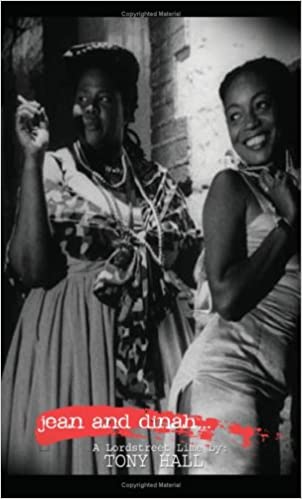
According to his brother, the ever popular comedian and cultural researcher, Dennis Sprangalang Hall, Tony skipped classes twice during his Primary and High School level years. This steadiness foreshadowed his scholastic achievement, which was reinforced in his adult years as a theatre and film maker, and an overall thinker and investigator of Trinidad and Tobago’s cultural heritage.
An actor, playwright, director, filmmaker, poet, cultural anthropologist and teacher, Tony Hall was a man of all seasons- a Renaissance Man. He did not have to possess a Masters or Phd degree in any of his many fields, yet Tony was well sought after by Universities and Institutes the world over for brilliant analytical thinking as well as his artistic achievements in theatre and film. His Jouvay Popular Theatre Process (JPTP), which he created circa 1992, remains one of the theatrical forms still to be fully explored and developed by theatre practitioners in the Caribbean and abroad. He remained easily the only person that could teach and articulate its intricacies.
I attempted to teach it once here in Canada with a group of actors, not before consulting with Tony. Needless to say, he was not happy that I was attempting to do so, but gave me his blessing with the expectations that I report back the findings. This I did, and we found new revelations through the discourse. However, I was never confident enough to attempt it a second time and perhaps never will again. My one apprenticeship period with Tony in Leeds, England through the Canadian Chalmers Fellowship did not provide sufficient contact hours to fully grasp Hall’s JPTP. I did not have the luxury of time to truly apprentice with him as he did under Derek Walcott. He often quipped about that period when he would even sweep and wash dishes in Walcott’s household in pursuit of becoming a playwright and poet of Walcott’s stature.
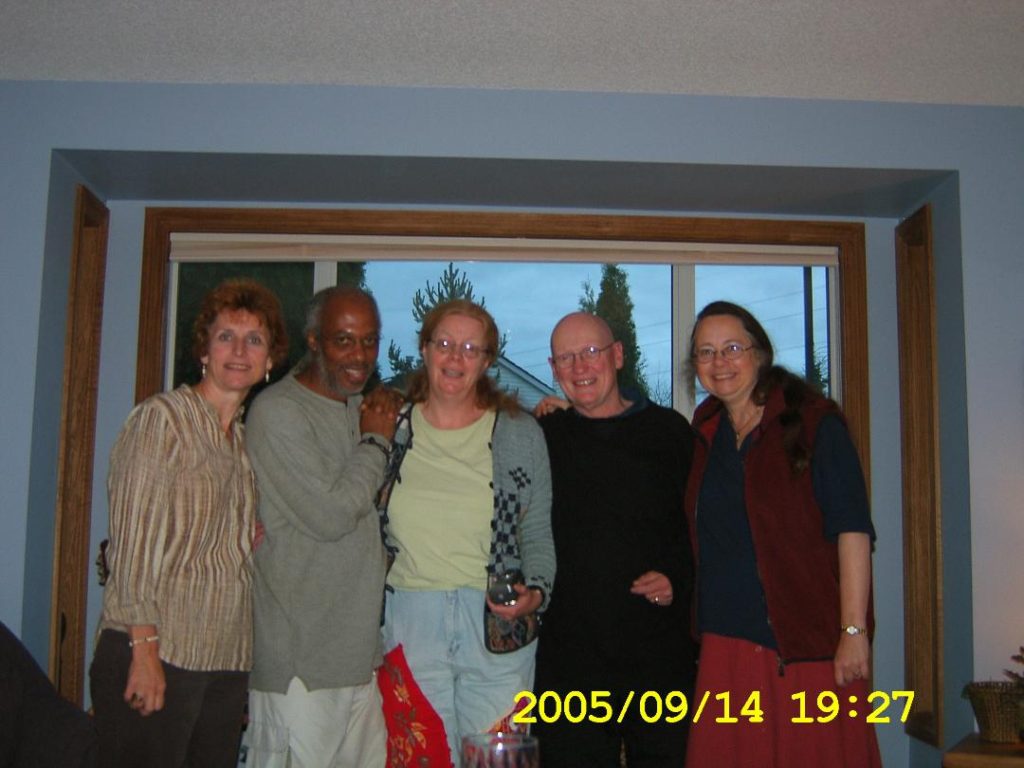
The Jouvay Popular Theatre Process was the technique used in the playmaking process of Jean and Dinah who have been locked away in a world famous calypso since 1956 speak their minds publicly, the entire title of the popular Trinbagonian play (Jean and Dinah). This play was collectively created through a workshop process between Tony and two actors, of which I was one, in 1993. I worked in collaboration with Tony together with Susan Sandiford to create the play through a unique playmaking procedure involving research and improvisation. Both Sandiford and I would conduct research through field trip interviews of women who had served as sex workers during the time of the yankee occupation in the Second World War, Trinidad.
JPTP beckons us actors/playmakers to find the archetype that we carry within ourselves from the pantheon of traditional carnival characters. That these characters were created by the post emancipated African in Trinidad spoke volumes about their inherent state of being at the time. The question that Tony always asked is , “Why would one individual play Midnight Robber every year for forty plus years, why would a woman play Baby Doll every year in the same costume, and so too the Bat, Imp, and Sailor”? They would just dust off the costume from last year and play again this year, adding a sequin here or there. In his musings, he attributes that they are indeed playing themselves that they are denied the entire year. Carnival allows them to reveal the mask while still putting on a mask. ‘Mas ah make yuh out’. The phrase any bystander uses if they know the person playing the mas behind the mask. It is an acknowledgement that says, I know who you are under the mask, or perhaps, indeed, through the mask.
JPTP encourages an actor to find within themselves an affinity for any of these characters that Tony associated with Jouvay, or the Ritual of the Sunrise, and allow the character to become their guiding spirit; finding their own archetype. Tony likens a politician to a Midnight Robber, the plight of renegade fathers and single mothers to the Baby Doll. In my Carnival Medea, which he produced in 2017, I likened the Batonye (Stickfighter), for example, to an unfaithful spouse/partner — ‘the Village Ram’. Here, the bois (stick) becomes a phallic symbol of sexual prowess. In the mouths of the Trinbagonian millennial, he would be a Zesser, I suppose, now that Zesser has become a new archetype and figure in the pantheon of JPTP archetypes. This is the revelation I alluded to when Canadian actors offered a French Canadian character called Pepe La Cue. The Canadians showed us then that JPTP is not relegated only to Carnival characters. The process with its archetypes can include French-originated characters, as well as Folk characters or the divine avatars and Gods from the pantheon of Hinduism and Ifa belief (Orishas). These characters or Gods manifest themselves in us. As artists we have a duty to key and transfer them in art, whether for playmaking, filmmaking, songwriting, calypso composing or in poetry. This in essence is the most basic characteristic of the JPTP.
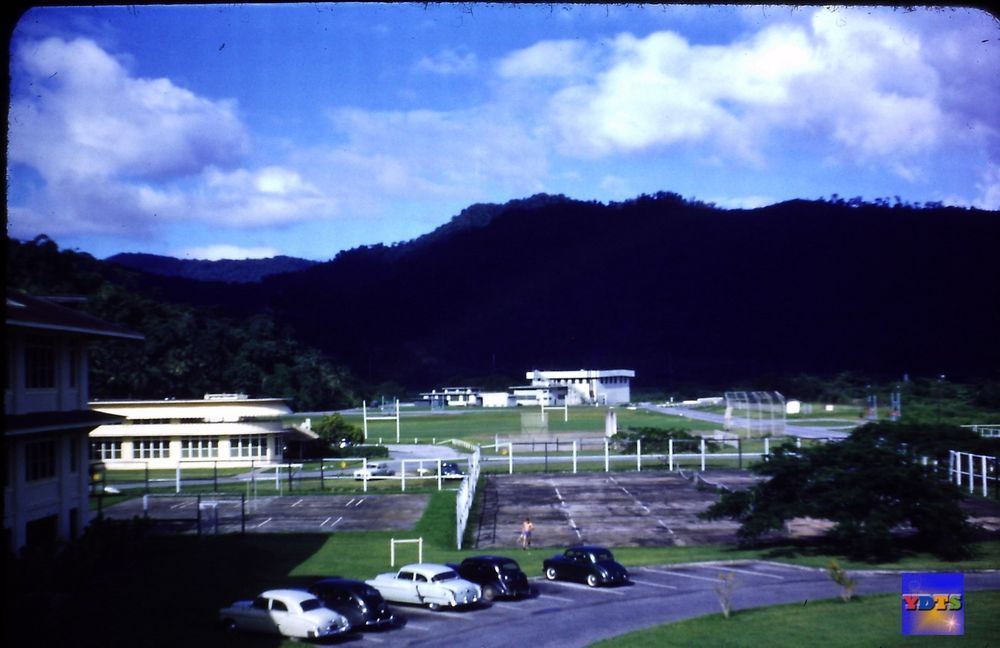
In terms of gender, Tony Hall was one of the only male Caribbean playwrights that I knew to be writing for and about women and the struggles of our people. Jean and Dinah was a story about two women who serviced Yankee soldiers during the US Army occupation in the western peninsula of Trinidad. Miss Miles portrayed a Trinidadian public servant and whistle-blower, who exposed Government corruption, in a scandal historically called the ‘Gas station racket’. With broader reference to history, Red House – Fire Fire was the story of the Water riots and the burning of the Red House, the seat of The Legislature, in the early years of the 20th century. His Monster March , written together with Errol Sitahal and Dennis Hall, tells the story of the famous workers’ march that sparked the labour riots of 1937. This street theatre performance was mainly made up of union workers as its members of cast.
Another vision of Hall’s is the concept of Mas Intervention and a Theatre of Participation and Presentation. Through this form he created the Amy and Marcus Garvey Project. Though he projected a complex theatre project involving students and actors from all over the world, beginning in Costa Rica, what he produced was a revolutionary mas band of 2 masqueraders driven in a vintage car on the road on Carnival Monday, 2018. However, the mas was short lived. A very eager police Inspector ordered their removal from the road because the presentation was in a motorized float. The public looked on in awe as Marcus and Amy Garvey paraded, but the police were not sold. Oblivious both to its originality and its literally vintage adaptability to a Carnival form, they did not participate in his Theatre of Participation and Presentation, a style that evoked on the streets the style of playing in the theater in the second Act of Jean and Dinah.
The manifestation of these two important pan-Africanists was again in action in the city of Hartford, Connecticut. Here, City and State Officials, Trinity College [University] President, Faculty, staff and students joined a large number of Connecticut residents, including Caribbean Americans who came out to welcome the Garveys as official guests of the City, State and University on Constitution Plaza in Hartford. The City of Hartford dedicated this day as “Marcus Garvey Day,” honoring dead pan-Africanists manifest in the bodies of living actors Michael Cherrie and Penelope Spencer. At once, the Americans got it! Mama, ‘dis was Mas’!
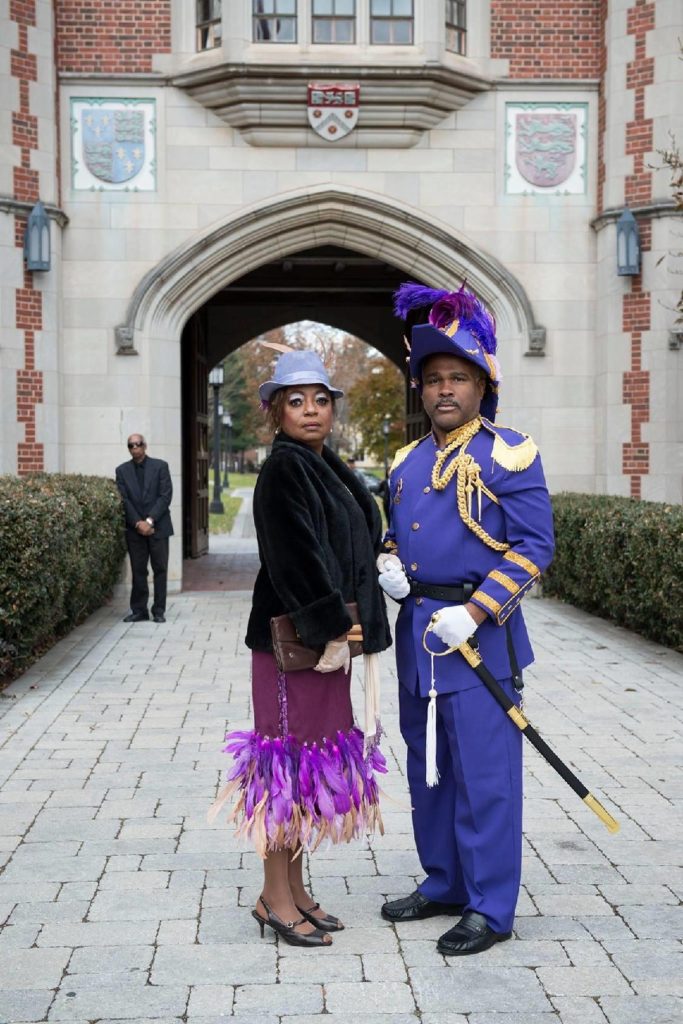
Photo by Pablo Delano
As a Trinidad and Tobago local television pioneer, Hall was one of the founding members of the Banyan Television Workshop. Having worked as a pioneer of SCTV in Western Canada, Tony shared his skills with the young actors of the Workshop. Some of the most impressive Trinidad soap operas and actors came out of this Ensemble. The very popular television series, ‘Moral’ followed by ‘Who the Cap Fits’, were among Trinidad’s first local television soap operas. In the 1990s he worked with another popular local Soap, ‘Westwood Park’, as the acting coach, and in countless other film projects whether as a Consultant or as Director. However, it is his tireless effort to see his seminal play Jean and Dinah make it to the silver screen that sporadically consumed his life for the past twenty years. Death would overtake him before this film would come to pass.
An ode to Tony Hall is not complete without his aptitude for teaching. It’s a gene no doubt inherited from his Latin and Literature teacher father. American students who experienced his pedagogy at Trinity College in Hartford, Connecticut and at Trinity Satellite Campus in Trinidad as well as others are now so much better livers of life. I recall with envy his gift of teaching and teachable moments. Standing before a class of foreign students, he immerses and situates his students in whatever subject matter he is teaching. Wielding a Bois in hand, Tony takes on the warriorhood of the batonye to encourage his students to stand in the gayelle (circle) and fully experience this part of our cultural heritage. ‘Dance and fight’, as the masman Approo would say. A carnivalist at heart, he would travel the length and breath of the country to excavate the vintage practitioners of traditional carnival arts. In doing so, Caribbean American students learn from the feet of the masters.
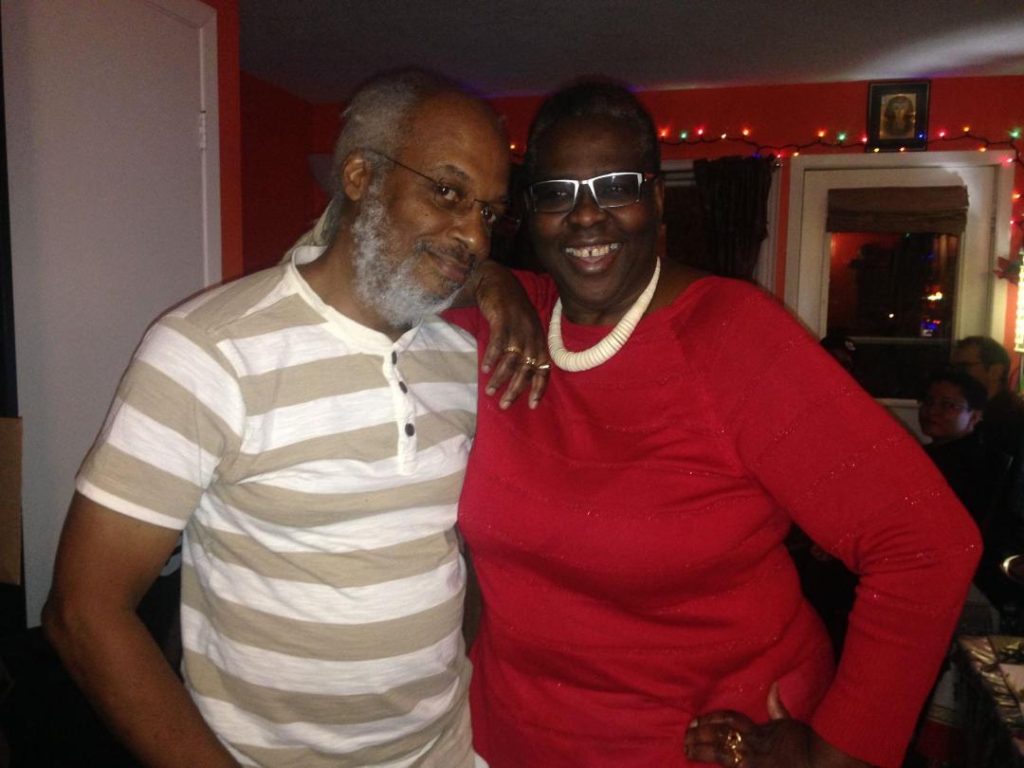
It is not enough to say that Tony Hall was way ahead of his time. Even as we boast of a National Theatre Company of Trinidad and Tobago, how truly national is this company if its Artistic Head is not making the kind of investigations that Tony made, for example, in consort with its ensemble: Creating a truly National Theatre as envisioned by Errol Hill. Tony Hall’s JPTP is a perfect place to start. Continue where he left off so that the world can stand up and look towards the National Theatre Company of Trinidad and Tobago in the same light as the Moscow Art Theatre, where its tapestry is spun by a visionary director and playmaker, as Hall was in his lifetime.

RHOMA SPENCER is an award winning actor and director, playwright and cultural critic. Her works have been critically acclaimed in the Globe and Mail, Now Magazine and the Toronto Star. In summer 2014 she was the recipient of a US Proclamation from the House of Congress and a Citation from the Brooklyn Borough President for her contribution to Caribbean Theatre with the play Jean and Dinah. She is also named in the Who is Who in Black Canada and in the Trinidad and Tobago 50th Anniversary Publication of Distinguished Nationals in Canada in the field of Arts and Culture.
